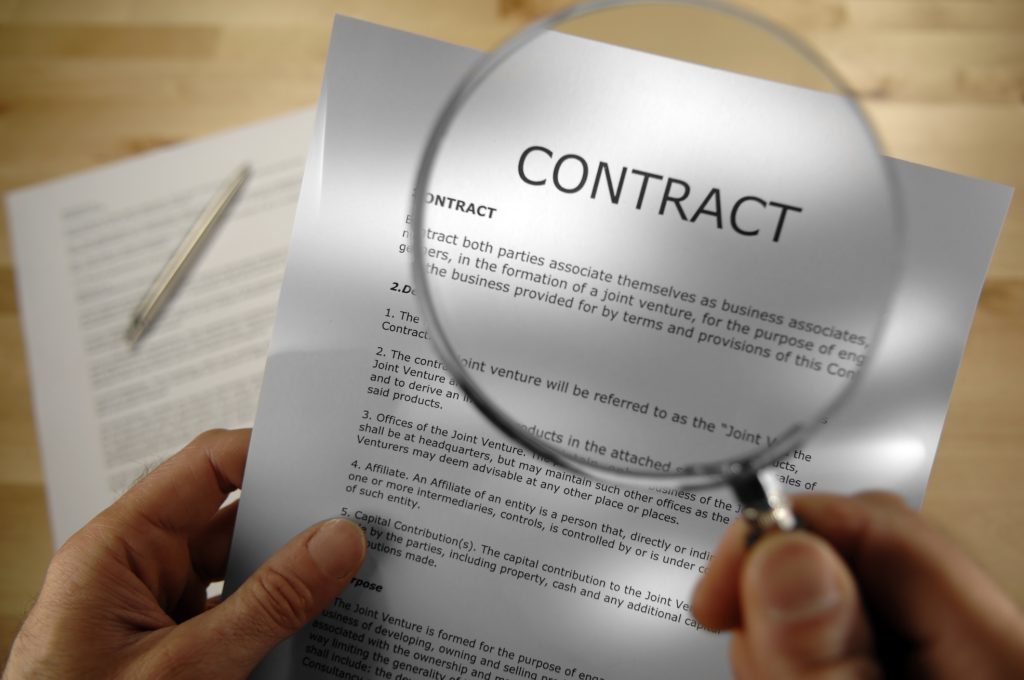FAQ about the legal procedure of selling a property
What is a sale contract?
 |
A sale contract is a legal contract regarding an exchange of goods, services or property from seller to buyer for an agreed price. It is a specific type of legal contract |
What are the formal requirements of a sale contract?
- Contract are in written format
- All contracts are signed by an attorney, a legal counsel, or a public notary
Without the above-mentioned the land registry office will not register the acquisition of property.
What are the obligatory contents of a sale contract?
The obligatory content of contracts should be the same in all cases. The specific elements must be complied by the proceeding attorney, legal counsel or public notary. Here are the most important elements:
- Personal data of the parties (the forename and family name, date of birth, mother's maiden name, residential address, as well as a personal identification number; the name, registered seat, statistical number and registration number for companies
- Details specific to the property (name of the settlement, topographical lot number);
- Nationality of parties involved
- The date and place of execution of the contract
- The initials of all parties in contact with the contract (including witnesses) on each page, in case of documents consisting of several pages
How do I minimize the chance of fraud?
- choose a reliable legal representative
- read every document
- act with due care and prudence
What shall I consider regarding legal representation?
It is of great importance to choose a reliable legal representative. The appropriate legal representative, due to his reliability and professional knowledge, enhances the smooth transferal of the property's title of ownership.
The buyer should have a contract drafted by his/her legal representative, held responsible by him or, if the parties choose to use the legal representative of the seller, ask his/her own legal representative to check the draft contract before execution. Even a single word may significantly change the meaning of the text.
It is advisable to choose a legal representative to oversee the land registry procedure as well as drafting a contract, in order to minimize potential problems.
What is important when it comes to Documentation?
Reading and interpreting documents should commence with the property′s title deed, containing the name of the owner, the identification of the property, the main data, encumbrances, etc. The title deed must not be older than 30 days. (This is important, since changes to the property's conditions may be effected even on the day of executing the sale contract, excluding the acquisition of ownership or cause long litigation.) The most reliable lawyers usually check the title deed on the day the contract is concluded or before payment of the purchase price.
In addition to the title deed, the deed of foundation must also contain all important details pertaining to the property. The deed of foundation clarifies exactly what belongs to the property.
Ownership title may be acquired only from the owner, who is the person registered as such in the property register. Although the presiding attorney-at-law or public notary is obliged to check the identity of the parties, we strongly recommend you check the seller′s identification thoroughly.
Due to the frequent occurrence of fake documents a few additional questions and perhaps a little additional effort may largely reduce the chance of fraud.
Always make sure to read the final version of the contract to eliminate later misunderstandings and typing errors. Sparing a few minutes may avoid years of litigation or even the loss of the property.
What are the main obligations of the seller?
The seller must inform the buyer about all the property's features, their circumstance and condition, particularly any occasional rights and encumbrances affecting it. Moreover, the seller must provide the buyer with documents concerning such circumstances, rights and encumbrances.
In case the seller fails to fulfill such obligations, the buyer may;
- claim a lower purchase price
- rescind the contract
- claim compensation
The buyer may not claim compensation in case of his/her failing to check conditions in the property register.
What are the possible Encumbrances?
It is of importance to read the title deed thoroughly, possibly using professional assistance, since overlooking even an ostensibly minor detail may have significant consequences.
The seller is responsible for the conveyance of the title of ownership and the deliverance of a property free of encumbrances. The buyer may claim compensation to free the property of encumbrances, or make the property free of encumbrances himself at the cost of the seller.
Encumbrances shown in the property register are:
- right of usufruct:
Should the property be encumbered by right of usufruct, it is then usual that the person entitled to the usufruct is also a contracting party, waiving his rights in return for compensation of some form. The approval of the person entitled to the right of usufruct is not a condition to the validity of the sale contract, however, in case of a life-long usufruct the entitled person may use the property until the end of his life. Payment of the purchase price or the last part thereof only takes place after the person entitled to usufruct waives that right.
- Mortgage:
Should the property be encumbered by a mortgage the sale contract may be valid regardless of continued encumbrances. No statement of approval is needed from the person entitled to the mortgage. According to normal practice, the seller undertakes responsibility to clear the property free of encumbrances within a limited period of time, or the buyer pays the part of the purchase price needed to make the property free of encumbrances to the attorney at law proceeding in the case.
The amounts of the encumbrances and the person and method of paying them shall always be included in the contract (this is important because the amount shown in the property register usually shows the amount of the capital debt existing at the time of registration and not at the time of the legal transaction.)
- prohibition against alienation and encumbrance;
The prohibition against alienation and encumbrance may be found, mainly for the purposes of securing mortgages, on the title deed of the property. A contract concluded during the existence of a registered prohibition against alienation and encumbrance is considered null and void.
In case of a prohibition against alienation and encumbrance securing a contract of inheritance, the future heirs must be in agreement with the contract. Note that the right secured by the prohibition against alienation and encumbrance is always shown in the real property register and that related documents are also available at the land registry offices, where the exact conditions are registered. It is advised to hire professional legal assistance, since understanding the exact conditions means studying the contracts and various documents basis for the prohibition against alienation and encumbrance.
- easements; rights of execution, mining rights, etc;
What expenses shall be expected regarding sale contracts?
Established practice dictates that seller shall bear the expenses in connection with the delivery of the property, the clarification of the status shown in the property register (payment of the debts secured by mortgage, etc.), and possible taxes in connection with the same.
The buyer shall bear the expenses of concluding the contract (lawyer's fee, etc.), the government duty connected to the acquisition of the ownership, as well as the costs related to the registration of the change of the ownership in the property register (the government duty connected with the property registration procedure).
The parties are free to divert from the above rules of bearing of costs and may agree otherwise.
The market price of lawyer's fee is between the 0,5 and 1,5 % of the purchase price of the property. In certain cases where the percentage does not reach a certain amount, a minimum fee could be determined by the lawyer.
The price of services will be fixed according to the Ministry of Justice Decree depending on the value of the case
